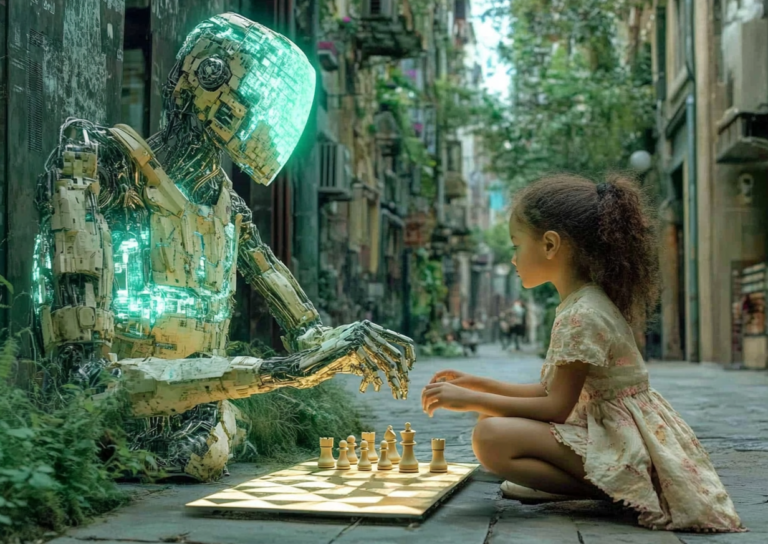The gaming industry is evolving at an unprecedented pace, driven by technological advancements and changing player expectations. With the rise of mobile gaming, powerful tablets, next-gen PCs, and immersive VR headsets, the future of game development is more exciting than ever. In this article, we explore the most promising branches and ideas shaping the future of gaming across these platforms.
1. The Evolution of Mobile and Tablet Gaming
Key Trends and Innovations:
- Cloud Gaming & Streaming – With services like Xbox Cloud Gaming and GeForce NOW, mobile devices are no longer limited by hardware constraints.
- AI-Powered Game Design – AI-driven procedural content generation allows for dynamic worlds and adaptive difficulty.
- 5G and Edge Computing – Faster internet speeds enable seamless multiplayer experiences with near-zero latency.
- AR Integration – Games like Pokémon GO showed the potential of augmented reality, and future mobile AR games will blend real-world and virtual elements even further.
Future Ideas:
Fully immersive AR experiences that gamify real-world activities, like fitness or travel.
AI companions that evolve based on player choices and playstyles.
Mobile games that seamlessly sync with PC/console counterparts via cloud saves.
Donec pede justo, fringilla vel, aliquet nec, vulputate eget, arcu. In enim justo, rhoncus ut, imperdiet a, venenatis vitae, justo. Nullam dictum felis eu pede mollis pretium. Integer tincidunt. Cras dapibus. Vivamus elementum semper nisi. Aenean vulputate eleifend tellus. Aenean leo ligula, porttitor eu, consequat vitae, eleifend ac, enim.
2. PC Gaming: The Rise of AI, Mods, and User-Generated Content
Key Trends and Innovations:
- AI Game Masters – AI-driven NPCs that react dynamically to player actions and behaviors.
- User-Generated Content (UGC) – Games like Roblox and Minecraft showcase the growing trend of player-created content.
- Ray Tracing and Real-Time Graphics Enhancements – Hardware advancements like NVIDIA’s RTX series push graphical realism to new heights.
- Seamless Cross-Platform Gaming – More PC games integrate cross-play with mobile and console ecosystems.
Future Ideas:
- AI-powered procedural storytelling that tailors narratives uniquely for each player.
- Cloud-based modding platforms allowing real-time integration of new content.
- Smart assistants in games that help players learn mechanics, strategies, or even create in-game assets.
3. The Next Generation of Game Design: AI, Blockchain, and the Metaverse
Key Trends and Innovations:
- AI-Generated Worlds – Procedural generation combined with AI for infinite, evolving game landscapes.
- Blockchain & NFT Gaming – Digital ownership of in-game assets and decentralized economies.
- Metaverse & Social Integration – Games as social platforms with virtual concerts, events, and marketplaces.
- Adaptive AI Opponents – Enemies that learn from player behavior and adjust tactics in real-time.
Future Ideas:
AI co-developers that assist game designers in crafting complex game worlds faster.
Fully adaptive AI-driven RPGs where no two playthroughs are the same.
Interconnected metaverse games with shared economies and player-created content.
Conclusion
The future of gaming across mobile, PCs, tablets, and VR headsets is bright and filled with endless possibilities. As AI, AR, cloud gaming, and blockchain technology continue to evolve, game developers must embrace these innovations to create more immersive, personalized, and boundary-breaking experiences. The next decade will redefine how we play, connect, and experience digital worlds—are you ready for the future of gaming?
Let’s build the future, one game at a time!

3 comments
Neque porro quisquam est, qui dolorem ipsum quia dolor sit amet, consectetur, adipisci velit, sed quia non numquam eius modi tempora incidunt ut labore.
Quis autem vel eum iure reprehenderit qui in ea voluptate velit esse quam nihil.
Et harum quidem rerum facilis est et expedita distinctio. Nam libero tempore, cum soluta nobis est eligendi optio cumque nihil impedit quo minus id quod maxime placeat facere.
Comments are closed.